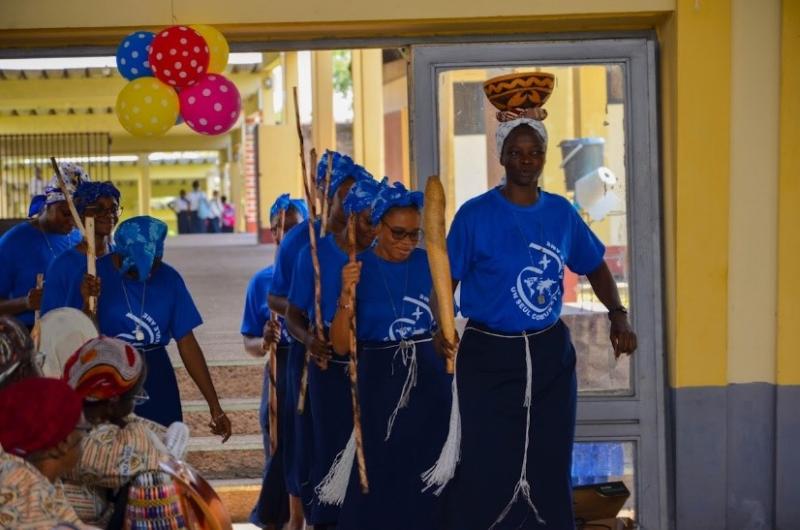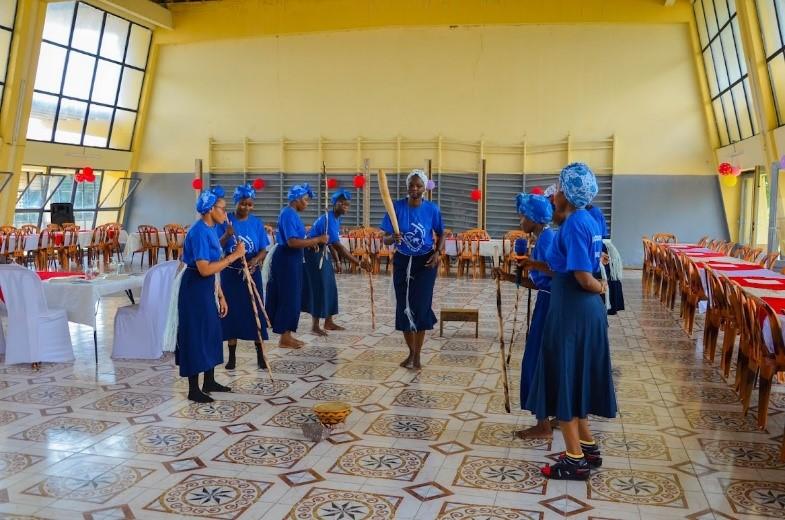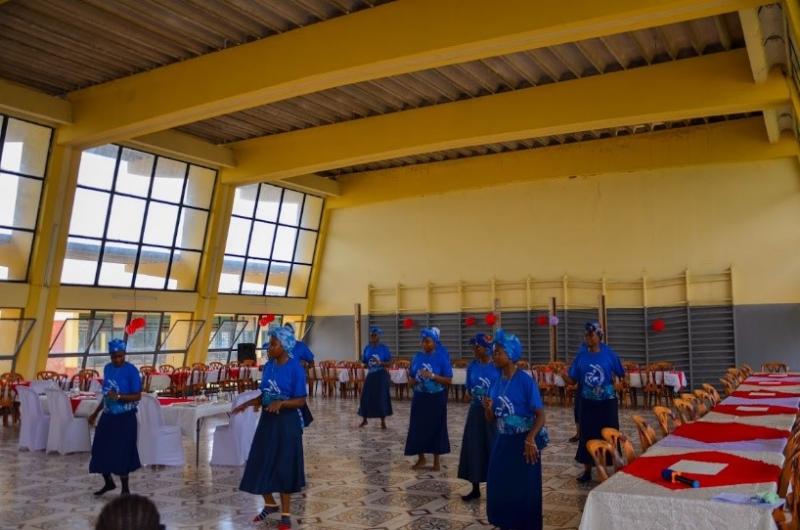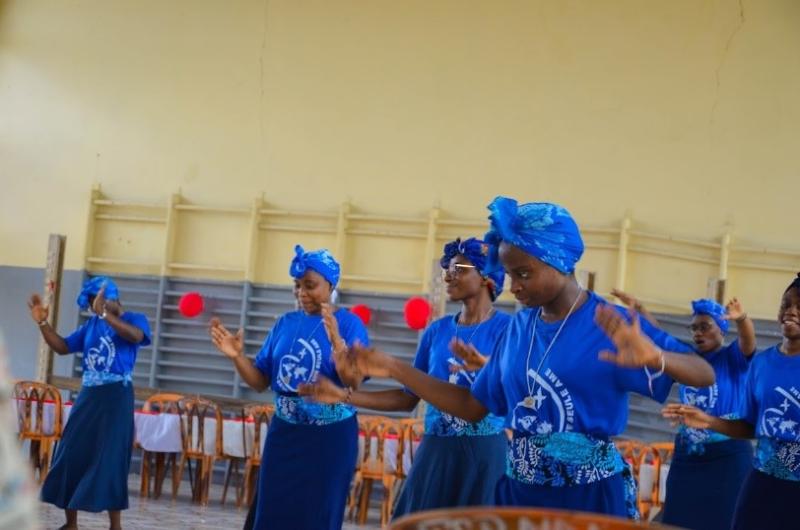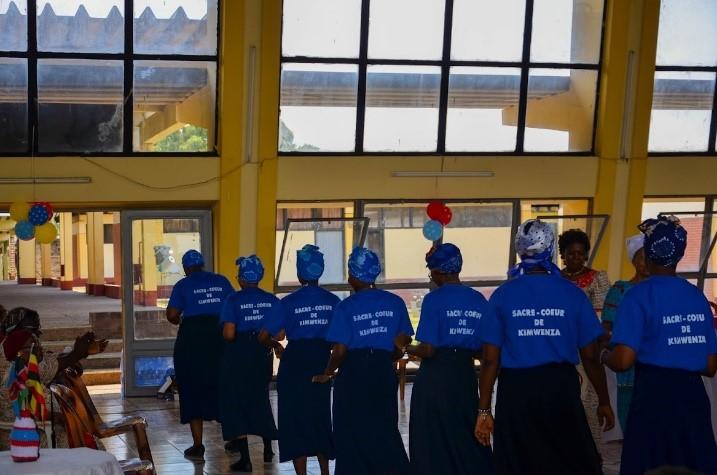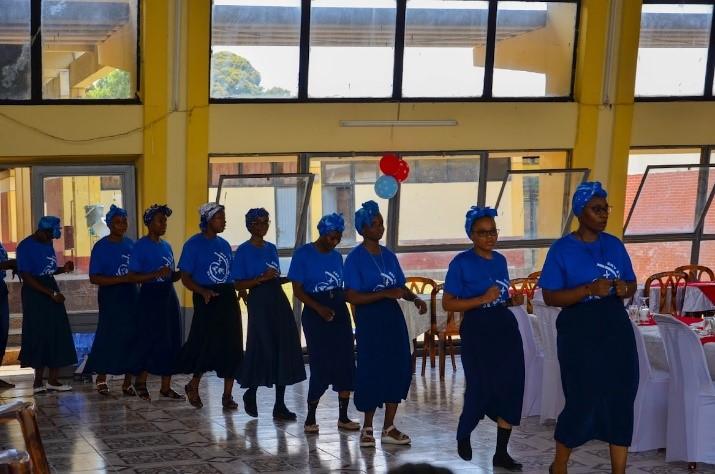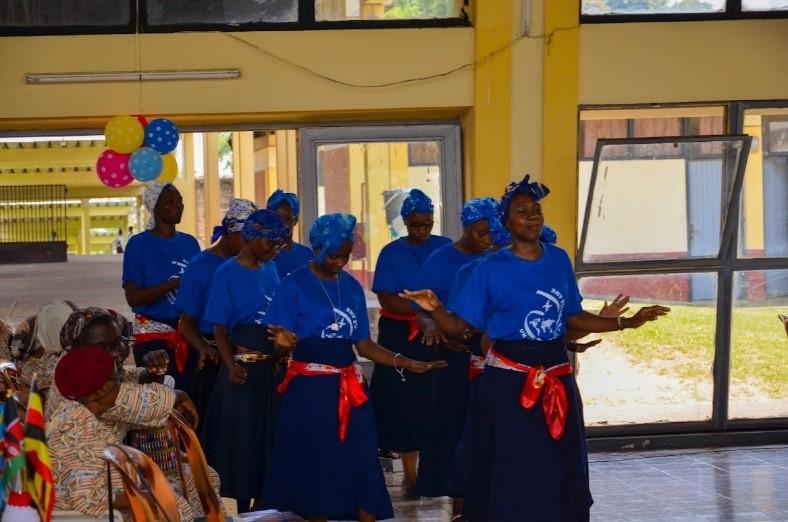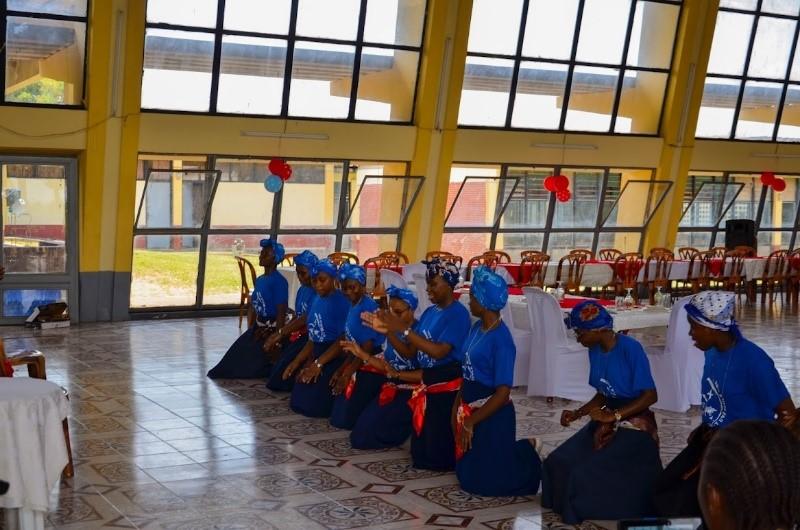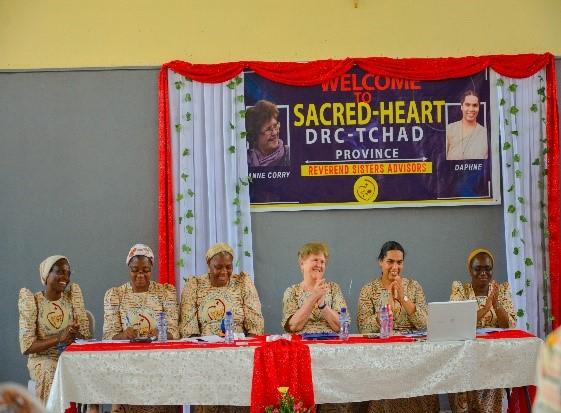On March 10 - 17, 2024, the Province of RDC-TCH was delighted to welcome two of the General Councilors, our sisters Daphne Sequeira and Anne Corry. During the assembly, we showed off a few traditional dance steps, accompanied by cultural presentations from four countries: the Democratic Republic of the Congo, Chad, Kenya and Uganda.
The first dance we performed, “Jambo bwana”, which means “Hello Mr”, is a song to show hospitality in Kenya. It is a reminder that when meeting someone even for the first time, one ought to show respect, kindness and greet them with a smile. "Maasai shuka" represents the cultural identity and heritage of the Maasai community in Kenya. Young women, especially those preparing for marriage, wear beaded jewelry on their foreheads, known as esiteti, to mark their transition to womanhood and eligibility for marriage.
As for the Buganda culture, we performed the "Kantonda yebale" dance and song to express gratitude to the Lord for all his blessings. The Bugandan women's attire is the gomesi, a long, colorful dress, worn mainly for wedding ceremonies, called kwanjula. All the women on the groom's side are required to wear gomesi.
The dance performed for Chad was entitled "Ndo yéh cro ne way yoo", whose singer speaks of polygamous families who do not value the first wife in the household. This dance was accompanied by sougou waï attached to the hip, with the Toupouri woman hiding her behind as a sign of respect to the men during ceremonies. The doundouloun is a musical instrument played by young girls under the moonlight to praise their boyfriends. The stone is to crush the millet very early in the morning as soon as the rooster crows.
Finally, we presented the culture of the Democratic Republic of the Congo with a loincloth on our hips, expressing the joy of the festival. The song that accompanied our dance step was entitled "Sabina", meaning "crazy love". This song urges women to get involved in work so as to be useful to society. Through this song, the author also speaks of the mad love he has for his wife, Sabine.
We chose this song firstly because we want to express the love we have for Jesus and for our congregation, but also to show our desire to become spouses of Jesus; women who are useful and capable of revealing the love of the Heart of Jesus to each other and to the world.
We thank the Lord who made this visit and the various meetings we had with them possible.
Inter Africa novices of RDC-TCH / UGK

